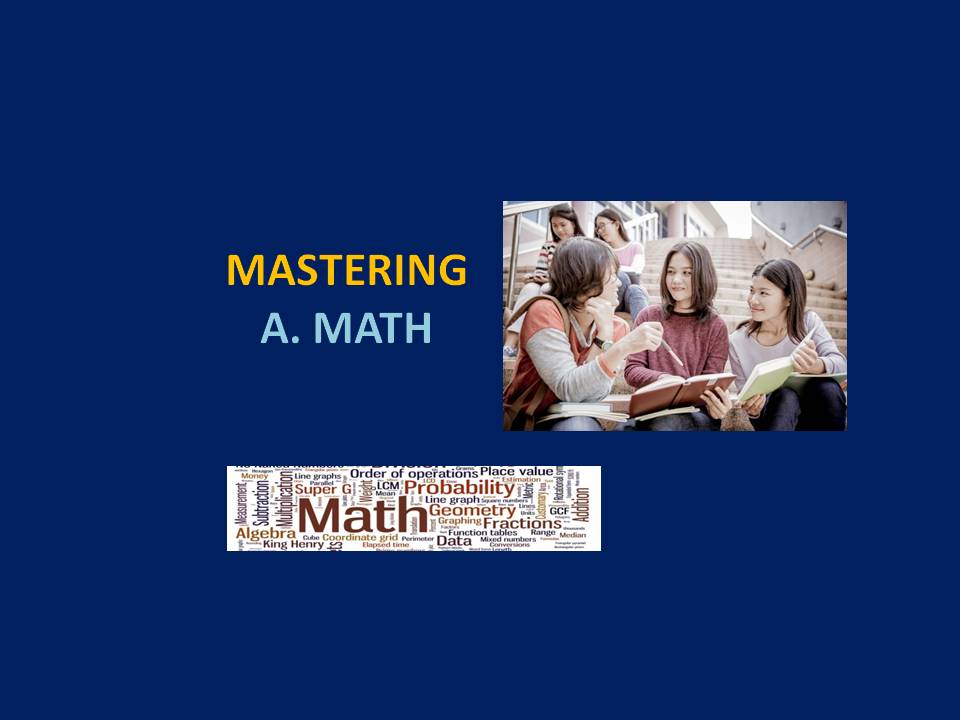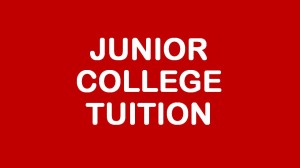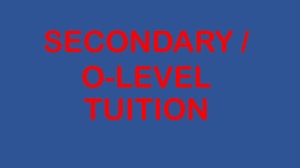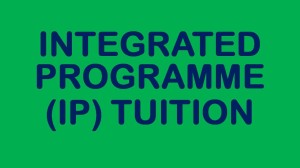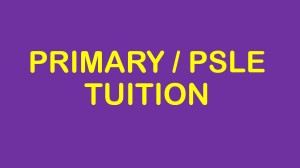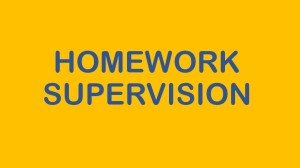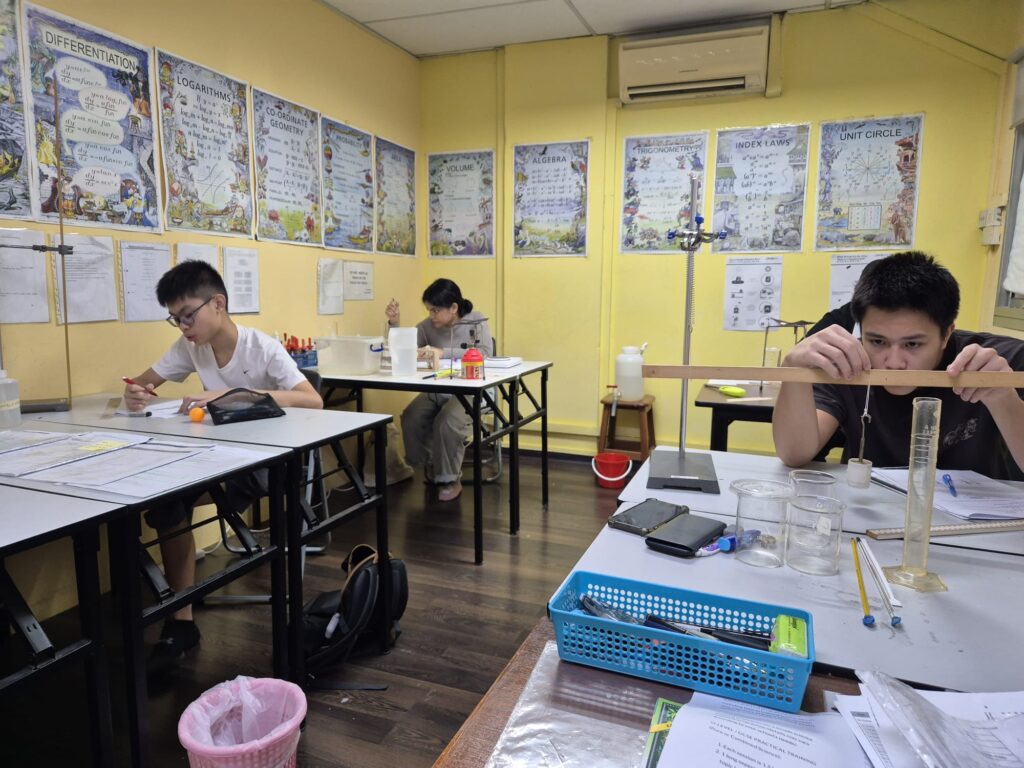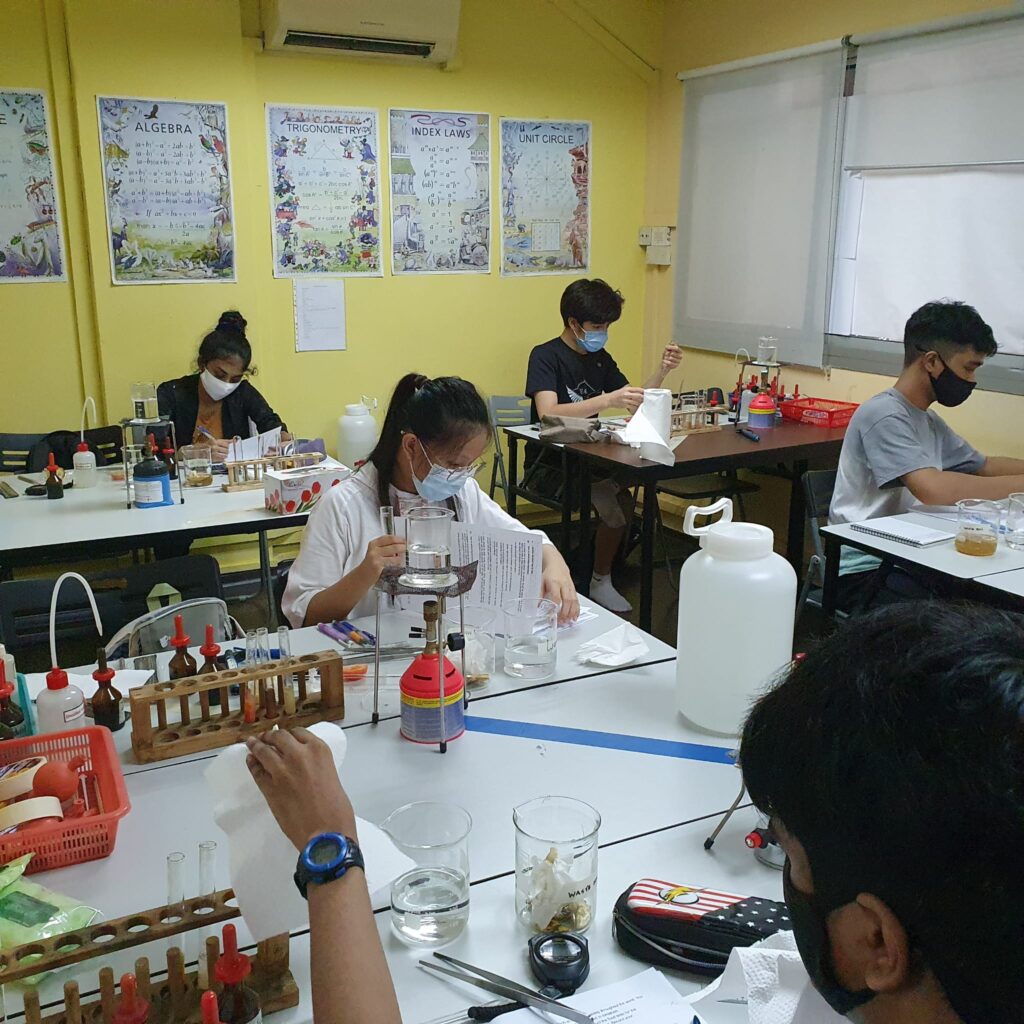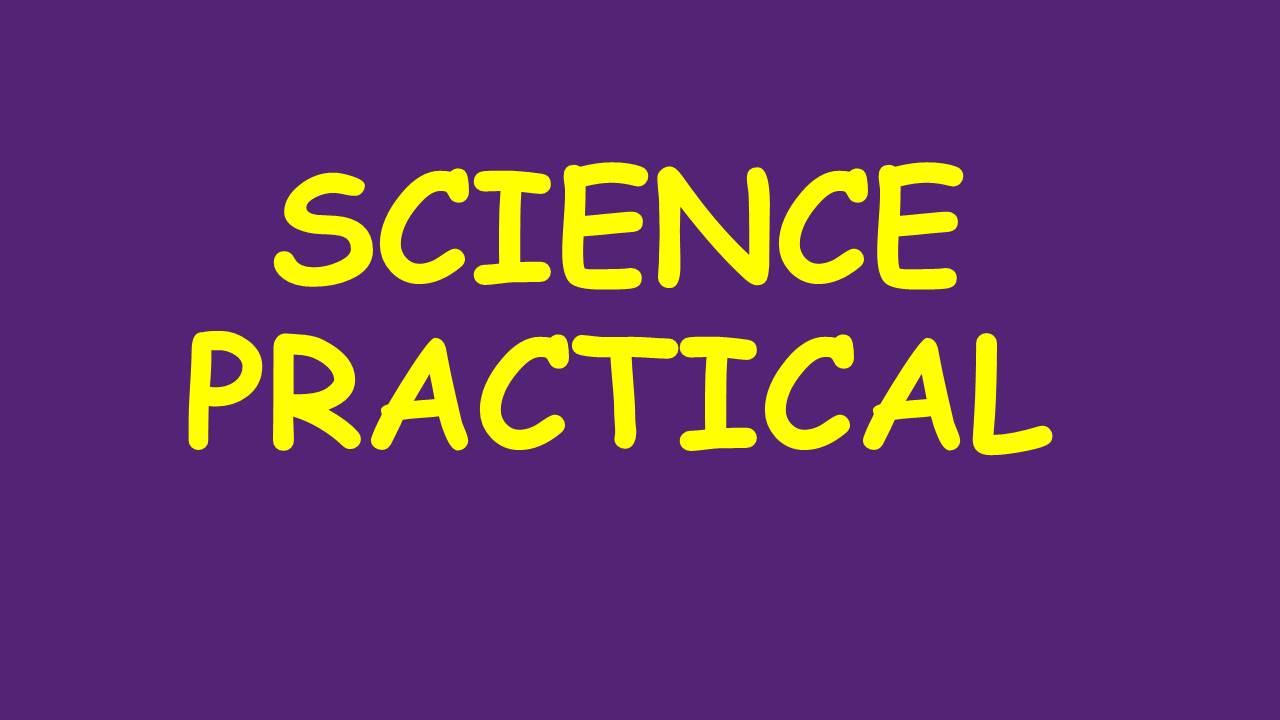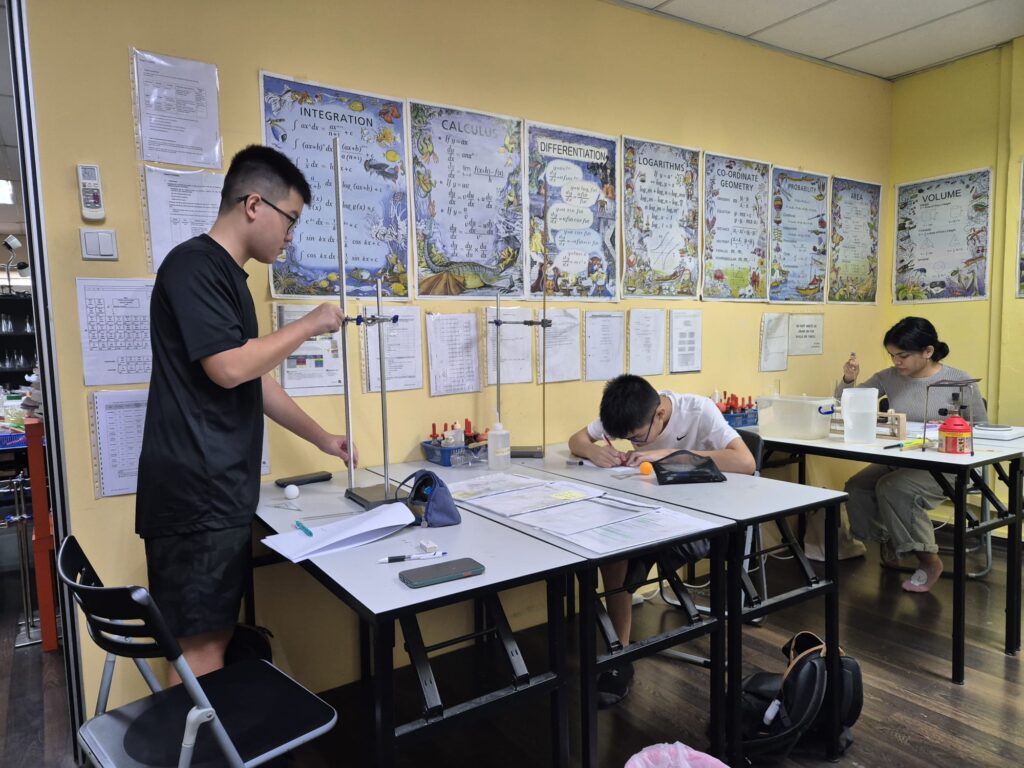Start Date: TUESDAY 24 Nov 2020
Location: Blk 644, Bukit Batok Central, #01-68, S(650644).
Focus: CONCEPTUAL UNDERSTANDING & APPLICATION OF SKILLS
Format: Teaching + Worksheets + Discussions
Target Group: Current S3 students who obtained a grade of B4 or lower in their Sec 3 A.Math SA2/EOY/Final Exam.
Days & Dates : Tuesday to Thursday, 3 sessions per week for 2 weeks, (24/11 to 3/12 OR 8/12 to 17/12)
Time: 10 am – 12 pm OR 5.30 pm – 7.30 pm.
Course Outline:
24/11 OR 8/12: INDICES & SURDS
25/11 OR 9/12: LOGARITHMS
26/11 OR 10/12: COORDINATE GEOMETRY
1/12 OR 15/12: EQUATION OF CIRCLES
2/12 OR 16/12: TRIGO EQUATIONS
3/12 OR 17/12: TRIGO IDENTITIES
Fee: $90 per student per 2-hr session.
$20 registration fee
Background of Tutor:
The tutor is a RI & RJC alumnus and a NIE-trained ex-teacher who has been teaching E. Math, A.Math and JC Math for more than 10 years.
To register, sms <Student Name><S3AMRL><Dates & Times> to 97860411.
For any queries, you may also talk directly to the tutor at 97860411.
TUITION CLASSES:
EDUCATIONAL SERVICES:
By EX-MOE TEACHERS & EXPERIENCED TUTORS
@ BLK 644, BUKIT BATOK CENTRAL, #01-68. S(650644).
CALL 65694897 OR SMS 97860411.
What to do if your O-Level results are bad ….
IMPORTANT INFORMATION FOR PRIVATE CANDIDATES
The registration for ‘A’ and ‘O’ Level exams as a private candidate usually opens around mid-April (Please check SEAB website) and closes before mid-May. If you are registering for a Science subject (Physics, Chemistry, Biology or Combined Sciences), at the time of registration, you will be asked whether you have done any science practical training in any school, centre, or institute. Thus you must begin your science practical training before April. Science practical training in Singapore Learner qualifies as practical training for the purpose of registration for Science subjects for the ‘A’ and ‘O’ level exams.
Thus if you are considering Singapore Learner as your science practical training provider, you must register with us and complete at least 4 practical sessions for each subject by 31st April for us to certify that you have attended science practical training. As students usually do about 10 practical sessions per subject to be competent in practicals, the rest of the lab sessions can be done from May to early October, including the prelim/mock practical exams.
To proceed, please click on the following:
O-LEVEL PRACTICALS
SCIENCE ACADEMY (Theory & Practical)
What I mean by bad O-level results is that you neither qualify for JC nor Poly. And like I’ve said elsewhere, it’s ok if you cried at first, because chances are, you are below 21 and legally, you are still a child (I had a 43 yr old O-Level student once though). But let your sadness be for just one day, and no more after that. The past is over. You cannot change it, but you can still influence your future.
What to do (and what not to do) if your O-level results are bad:
(1) Do not blame others. The first step in making any kind of improvement to yourself is not to blame your teachers, your tutors, your textbooks and certainly not your pet who once chewed up your homework (or so you claimed). Blame yourself. It was YOUR show. Only YOU can fail your self and only YOU can make your self succeed. Got it? Thank you.
(2) Reflect on yourself. What went wrong – your lack of revision, your poor time-management, your addiction to computer games etc.?
(3) Search and find your true self. What are your real interests? What is your passion? Maybe you are not the type to just sit still and study? Maybe you have real talent in Music or the Arts instead?
(4) Plan your next course of action. What can you do with poor O-level results? Here are some options:
(a) Redo your O-levels. If you are below a certain age (check with the MOE), you can redo it in your sec school; you’d still need the right environment and the support. But if you dislike the teachers in your former school, then you either self-study (but don’t forget to register for the O-levels), get tuition, or enrol yourself in a private school or a private education programme, such as the Science Academy. But re-taking O-levels will not bear fruit unless you do steps (2) and (3) above properly; if you continue your bad habits and bad strategies or you simply did not like the subjects you were taking, it’d be very hard for you to be self-disciplined and to maintain focus. You don’t get different results by doing the same things the same way over and over again (in fact, Einstein called that kind of expectation, “insanity”).
(b) Apply to the ITE. No, it’s not The End. But what course to do at the ITE? Don’t go to the ITE with the aim of working for someone later in life. Instead, go to the ITE in order to pick up a skill that will allow you to set up your own business. So what technical skills are good for business? What can you find in all homes and buildings that no ordinary person can install or repair? I can think of three: air-cons, electrical wiring and water pipes. In fact, you need a license from the government in order to do electrical wiring or plumbing work. Some day, you can become the owner or managing director of an electrical or plumbing company. Or you can migrate to Europe, America or Australia which are all in need of skilled personnel, instead of university graduates. And talking about skilled work or migration, don’t ignore nursing as a career. The thing is, don’t be lazy. And have some courage.
(c) If you are very very talented in some sport, music or the arts, apply to a school catering to such talent whether local or overseas (which might be more forgiving of your past). Or try to catch attention by posting a video of your gig on Youtube. Ask Bieber and Psy what happened to them. And some day, Jack Neo might come looking for you …. The thing is, don’t be lazy. And have some courage.
(d) Work first to get some experience of what you like doing. It would be good if you can be an apprentice in some place where there is skilled work, such as in a spectacle shop, watch shop, jewellery shop, air-con repair shop, bakery etc.
(e) If you are eligible for NS, do NS. Who knows, you might actually like working in the armed services, where food, clothing and accommodation (and even car park lots) are provided free. Before you think I’m crazy, why not you add up the total of cost of food, clothing and accommodation for some 30 years of work!
(f) Set up a business. No, you are not too young to set up a business. In fact, you can be a millionaire by the time you are 21. Do an online, e-commerce business, or simply a popular website that companies are dying to advertise in. The thing is, don’t be lazy. And have some courage.
(g) Apply to do a diploma or even a degree in a private school here, such as SIM. However, such a diploma or degree may not be recognised by the Singapore government for employment purposes in public service or even in govt-linked companies such as SIA or Singtel. And schools like SIM may require you to first complete a foundation course before you can be enrolled in a diploma or degree course. I know many students who have done poorly at the O-Levels will choose this option, because it makes them feel better this way, even if the diploma or degree is an external one, but let me tell you one thing – if you didn’t get 5 O-Level passes including passes in English and Math, it might come back to haunt you some day, because I’ve met adults who can’t be promoted or can’t change their jobs because of their grades at O-levels.
(5) Take action. Strategise. Gather resources. Believe in youself and your abilities. Adopt the right values and attitude. Set your short-term and long-term goals clearly. Write these down somewhere. Be positive, and be with positive people.
You see, there are so many ways to move on. Do not let setbacks affect you too much. Pick up and join back the pieces. Get up if you are down. Spend time with your loved ones. Remember these lines from Miley Cyrus’ song (if you don’t hate her of course):
“But I gotta keep tryin’. Gotta keep my head held high. There’s always gonna be another mountain. I’m always gonna wanna make it move. Always gonna be an uphill battle. Sometimes I’m gonna have to lose. Ain’t about how fast I get there. Ain’t about what’s waitin’ on the other side. It’s the climb.”
Do not worry about being left behind as your friends move forward. Chances are, you are going to live for another 60 years or so. When you look back someday, it wouldn’t matter that you ‘lost’ one or two years somewhere along the way. Setbacks happen to everybody; I had my fair share of failures and setbacks. How we respond to these setbacks matter.
If you still feel down, then please watch this video, http://www.youtube.com/watch?v=wOlTdkYXuzE. It might help you a bit. : )
Good luck and take care. : )
For Practical courses, mock exams or schedules, please click on any of the following:
O-LEVEL PHYSICS PRACTICAL
O-LEVEL CHEMISTRY PRACTICAL
O-LEVEL BIOLOGY PRACTICAL
Science Academy
O-LEVEL SCIENCE (PHYSICS) PRACTICAL
O-LEVEL SCIENCE (CHEMISTRY) PRACTICAL
O-LEVEL SCIENCE (BIOLOGY) PRACTICAL
Singapore Learner @ Bukit Batok
Blk 644, Bukit Batok Central, #01-68. S(650644).
Tel: +(65) 6569 4897, +(65) 88765498
Email: principal@singaporelearner.com
If you wish to visit us, kindly call or sms first. Thank you.
___________________________________________
Do not drop a subject if you still have interest in it.
This is the time of the year when your school may ask you to drop certain subjects that you are weak in, using the lame excuse that even if you work hard, you will at most obtain a B4 or a C5. In reality, your school is more concerned about its own academic reputation, not about you. Schools are worried that if weak students continue to sit for certain exams, their national exam results (percentage passes or distinctions) will worsen. Yes, it’s not about you or your future; it’s about the school’s image.
Thus you must be wary when any of your school teachers call you in to give you hints to drop a subject. The teacher will say that if you drop one subject, you will have more time to study for the other subjects. While this may be true, what about the months that you have spent learning that subject? And the extra hours that you create by dropping a subject, will it all go into learning the other subjects? Having less subjects also mean that you will be taking a bigger risk should the unexpected happen to your remaining subjects, as you would be relying on a narrower band of subjects.
Two subjects that schools like to ask students to drop are Physics and Additional Math, the two most conceptually difficult subjects to master, in my opinion. So should you drop any of these subjects if you are asked to?
For Physics, the answer depends on whether you still like learning about Physics. If you still do, then continue doing it and take the exam, even if you have hardly ever passed Physics before. Why? The reason is, Physics has always been a difficult subject for most people. Thus the minimum mark to obtain the A1 grade for Physics may still be in the 75 to 79 range, significantly below that for Math (which is probably around 88 to 91). Hence you still stand a good chance of getting a B3 or above for Physics if you are willing to spend enough time practising Physics questions. This is only possible if you don’t mind studying Physics.
I have a tuition student who is very weak in Physics, and true enough, his teacher has been pestering him to drop Physics. So his mum turned to me for advice. Since he still likes Physics, I told the mum not to give in to the teacher. The boy finally passed Physics for his recent SA1 exam, and is now doing exam papers to get a better grade for his upcoming Prelim exam. The boy is mentally slow, but since he likes Physics, the school should have helped him improve instead. Isn’t it the purpose of schools to develop each student to his maximum potential?
The boy had also been asked to drop A. Math. But like I’ve said elsewhere, NEVER EVER drop A. Math, as knowledge of it is useful for many future courses such as Business, Engineering or Science. Although he still failed in his SA1 A. Math, he has been making significant progress as he still likes doing Math. Where there is a will there is a way. Let children and young people learn what they want to learn, even if it means getting poor exam results for the short term. A school should not be telling students to stop learning this or that, or to stop making effort, or to give up on something good that they have started.
If you need more advice (or even tuition, see below) on Math, A.Math, Physics or Chemistry or Combined Science, do whatsapp me at 97860411.
Ilyasa
An NIE-trained Teacher, Mr Ilyasa has been coaching students in O-Level & IP Chemistry, Physics and Math for more than 12 years. An alumnus of Raffles Institution, Mr Ilyasa holds a a Bachelor of Science degree from the NUS as well as a Master of Education (Curriculum & Teaching) degree from the National Institute of Education. Mr Ilyasa’s thinking and metacognitive approaches to problem solving has helped many students of varying abilities to excel in Math and the Sciences. He has coached students from many different schools and streams, including IP, SAP, and IB.
